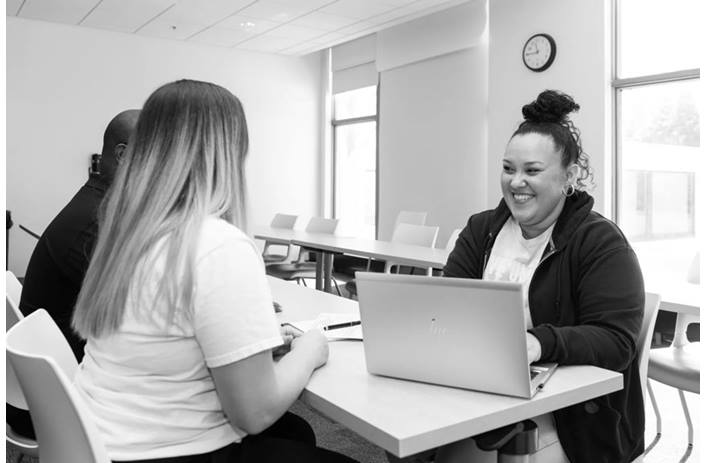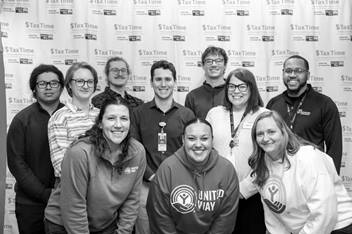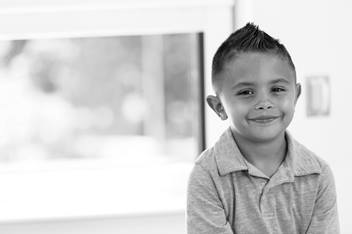How a “Medical Financial Partnership” Can Improve Child Health

There’s increasing evidence that some personal tax credits are linked to improved family health – particularly for families who live in poverty.
But the very families who would most benefit from these tax credits often don’t claim them. Filing taxes can be both confusing and costly. An estimated 20% of taxpayers who qualify for the Earned Income Tax Credit don’t file taxes, for example, meaning millions of dollars remain unclaimed each year.
So in 2020, Nationwide Children’s partnered with community-based organizations in a “medical financial partnership” to set up free tax filing clinics in Columbus neighborhoods with high levels of poverty and infant mortality. A recent study shows how the program succeeded, and how the other health care organizations can do the same thing.
“We wanted to showcase how we are expanding access to free tax filing services and increasing awareness by collaborating with our community partners,” says Laura Chavez, PhD, MPH, principal investigator at Nationwide Children’s Center for Child Health Equity and Outcomes Research and lead author of the study. “We are excited to share how these efforts increased the use of our services and how tax credits can positively impact families.”
Nationwide Children’s offered independent free tax filing services at its community health care sites and also partnered with existing free tax filing clinics through United Way of Central Ohio (UWCO), which works with the national Volunteer Income Tax Assistance (VITA) program.
The program’s marketing campaign also collaborated with CelebrateOne and Physicians CareConnection (PCC) StepOne, organizations that focus on maternal and infant health. Thanks to referrals and feedback on marketing materials, both organizations helped Nationwide Children’s connect with many eligible families.
In the program’s first year, volunteers at the tax filing clinics had filed 469 tax returns. In the third year, they filed 532. In total, 1,522 were filed to claim more than $3,496,700 in combined federal and state tax return credits across all three years. The clinics saved families an estimated $304,400 in filing fees.
Even though the program’s first three years coincided with the COVID-19 pandemic, it was a remarkable success, said Dr. Chavez. And Nationwide Children’s learned some important lessons that could help other organizations succeed in setting up their own medical financial partnerships:
- Community collaborations are key. “The study shows how we set out to increase both the awareness and use of our free tax filing services,” said Dr. Chavez. “We became a trusted source for tax filing, but it took a strong partnership with community-based organizations to get the word out.”
- Leverage hospital resources. Nationwide Children’s and its partners were able to build up the services year over year in a sustainable way by leveraging the hospital’s resources – particularly the hospital’s marketing team, which worked with community partners to develop messaging that resonated with the community and reached more people each year.
- Meet challenges when they arise. “This study began during the height of the pandemic, making it difficult to deliver tax filing in person,” says Dr. Chavez. “In a lot of ways, we were in the best position to deliver these services because we were a hospital and could do so safely. It shows the impact an institution like ours can have.”
Today, Nationwide Children's continues to offer free tax filing services and is expanding its efforts through Partners For Kids, the hospital’s Medicaid accountable care organization. The hospital is working to grow its Columbus-based tax clinics to meet demand while expanding into rural Ohio.
This study blueprints how other health systems can offer free tax filing services to families in poverty. By helping families claim the tax credits they’re entitled to, pediatric hospitals across the country can address a wide range of health outcomes for children all impacted by poverty, including infant mortality, kindergarten readiness, obesity and mental health.
“With this work, we're thinking beyond traditional health care to the overall health of the community,” says Dr. Chavez. “We need increased access to these economic supports in order to promote a whole-person view of health.”
Published June 2025




